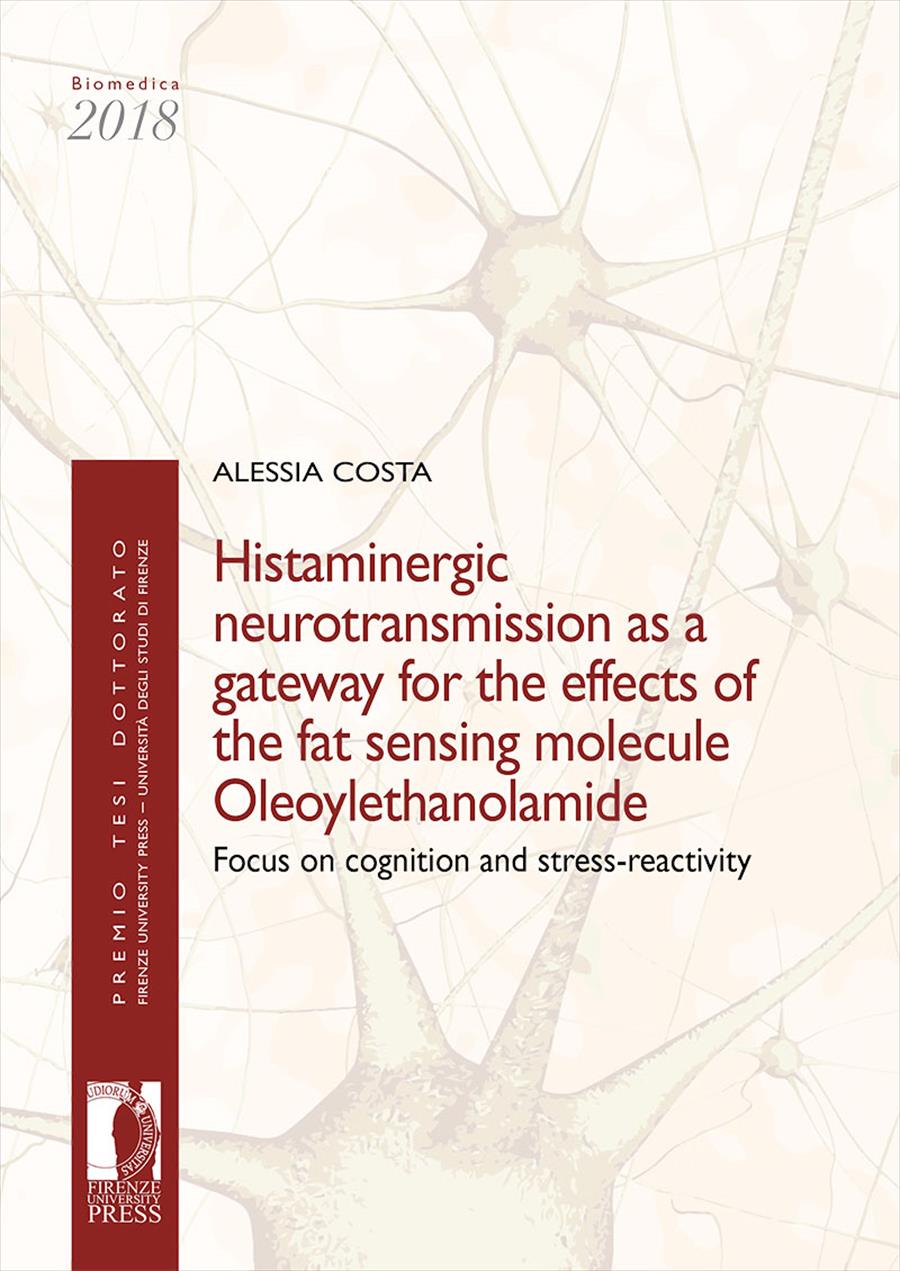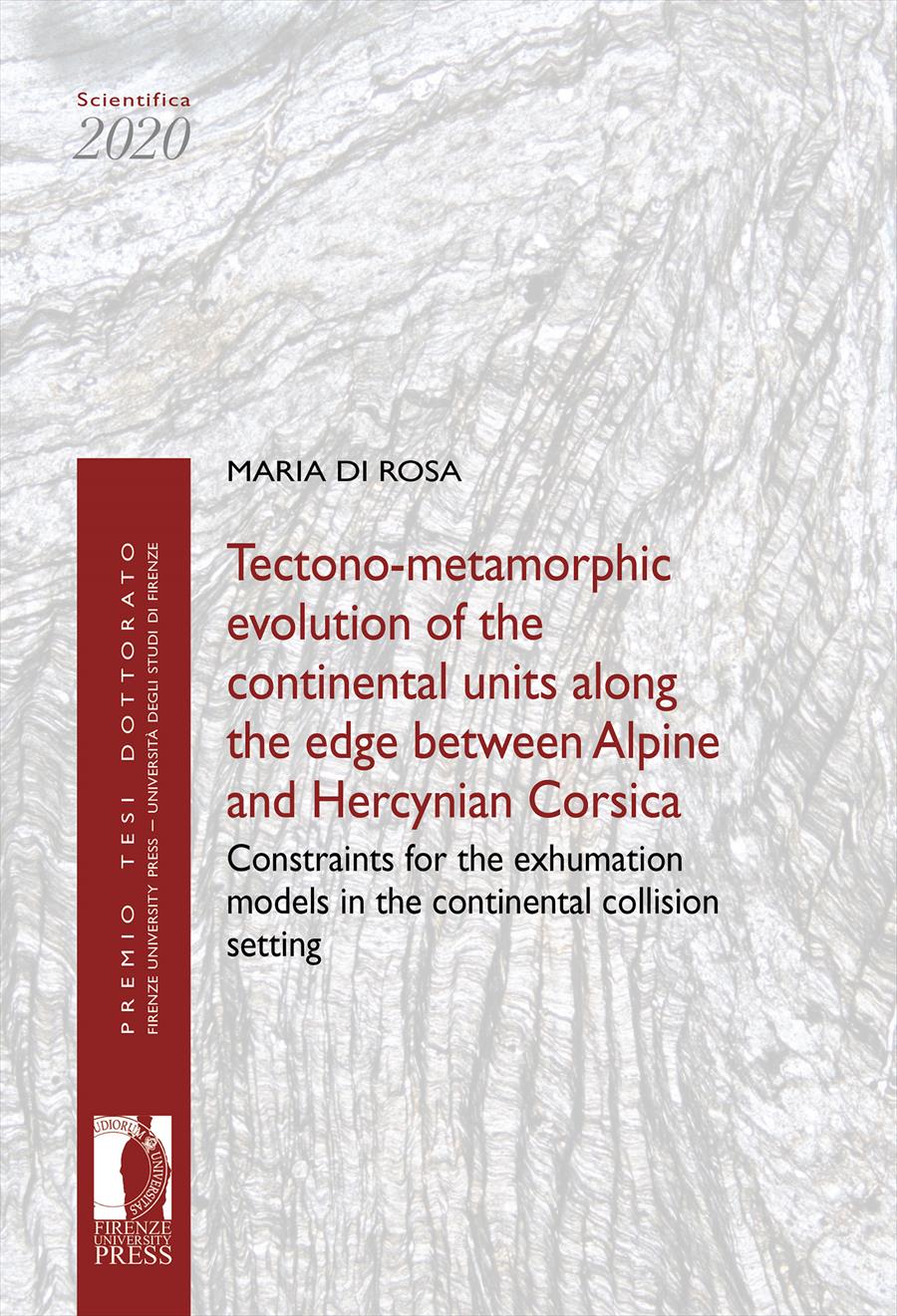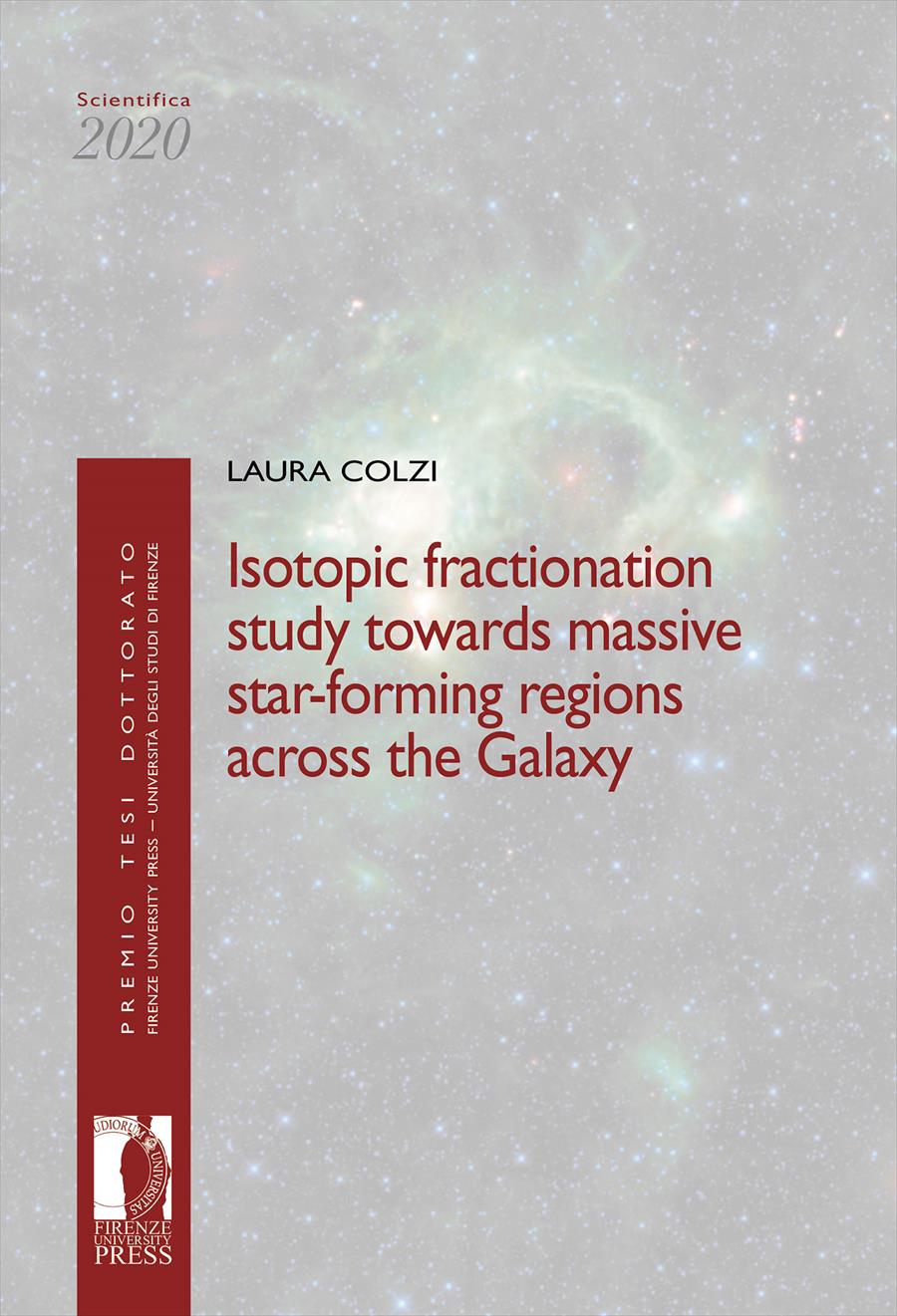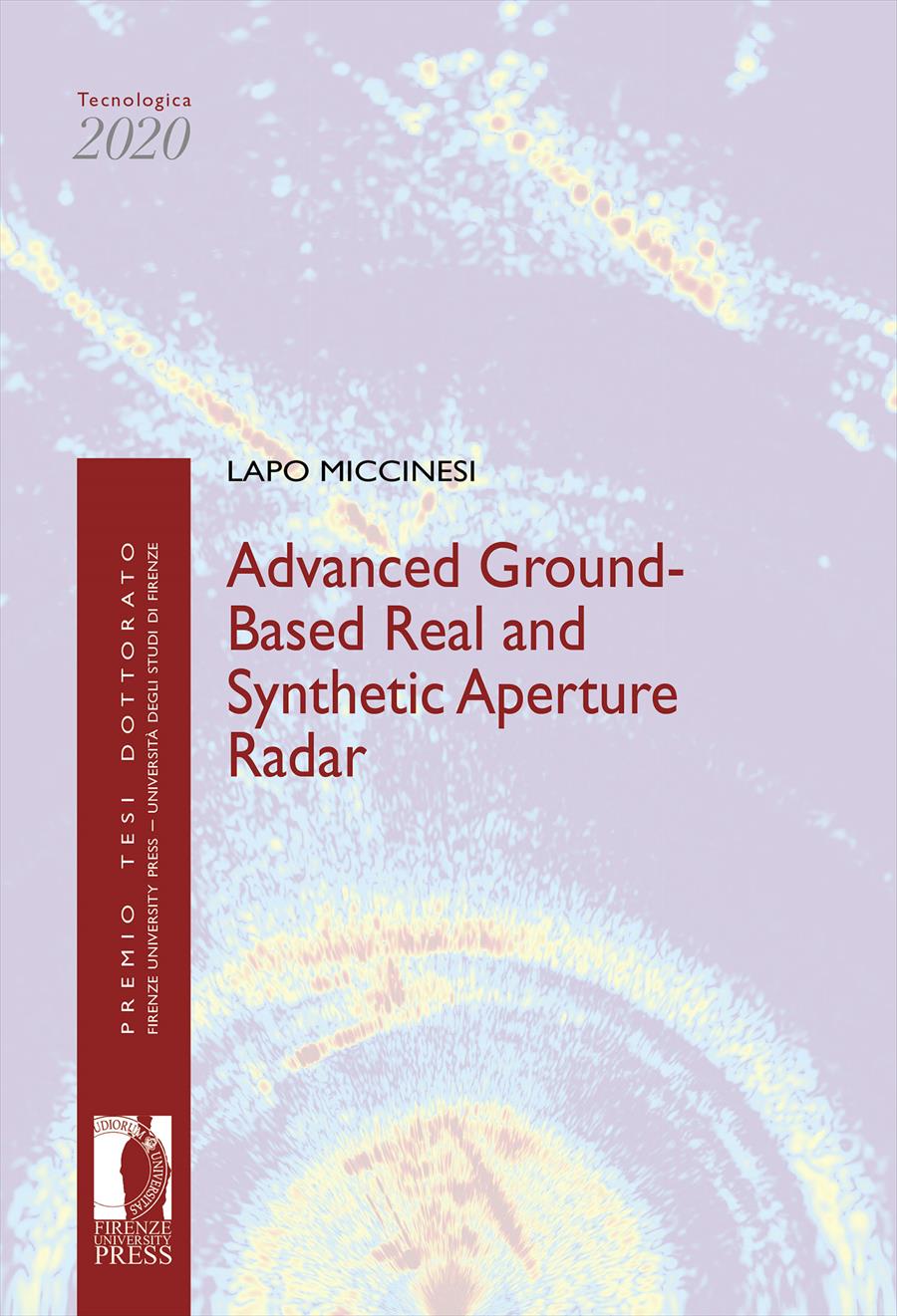Histaminergic neurotransmission as a gateway for the effects of the fat sensing molecule Oleoylethanolamide
Focus on cognition and stress-reactivity
- Alessia Costa,
The histaminergic system is a pleiotropic system that commands general states of metabolism and consciousness, including learning and memorizing both pleasurable and aversive events. Brain histamine mediates the central effects of a signal molecule produced in the intestine, namely oleoylethanolamide (OEA). OEA is released by the enterocytes in response to high fat intake and reduces eating, by indirectly activating a subpopulation of histaminergic neurons. In her thesis, she explored other potential interactions between these two systems in the pursuit of unexplored neuronal mechanisms that may shed light on the mode of action of psychoactive agents and possibly lead to the development of new drugs.
- DOI: 10.36253/978-88-6453-995-9
- Series: Premio Tesi di Dottorato
- Scientific Board
- Language: English
- Subjects: Medicine
- ORCID: 0000-0002-3693-3019
- Publication Year: 2019
- Pages: 124
- eISBN: 978-88-6453-995-9
- Content License: CC BY 4.0
- © 2019 Author(s)
- Publication Year: 2019
- Pages: 124
- ISBN: 978-88-6453-994-2
- Content License: CC BY 4.0
- © 2019 Author(s)
Bibliographic Information
Book Title
Histaminergic neurotransmission as a gateway for the effects of the fat sensing molecule Oleoylethanolamide
Book Subtitle
Focus on cognition and stress-reactivity
Authors
Alessia Costa
Peer Reviewed
Number of Pages
124
Publication Year
2019
Copyright Information
© 2019 Author(s)
Content License
Metadata License
Publisher Name
Firenze University Press
DOI
10.36253/978-88-6453-995-9
ISBN Print
978-88-6453-994-2
eISBN (pdf)
978-88-6453-995-9
eISBN (xml)
978-88-9273-018-2
Series Title
Premio Tesi di Dottorato
Series ISSN
2612-8039
Series E-ISSN
2612-8020






